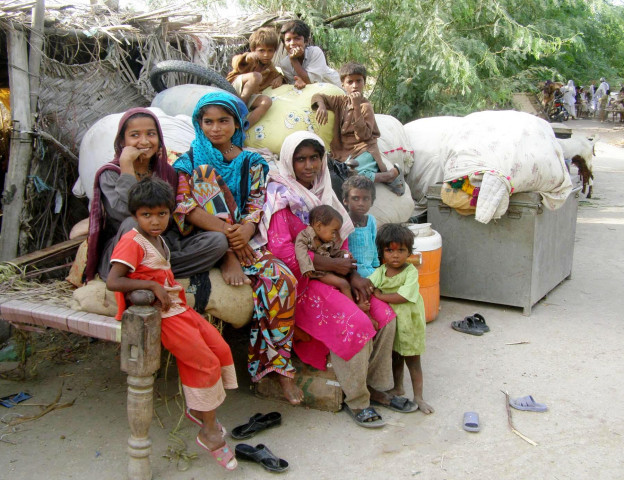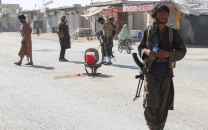Thatta residents forced to set camp themselves
Flood survivors complained that the government is doing nothing for them.

A seven-kilometre-long stretch alongside Thatta’s Sajawal bridge has become home to thousands of villagers who were asked to leave their settlements by the district administration due to the flood threat. However, flood survivors complained that the government is doing nothing for them.
“Our children are dying of hunger. We have no facilities and are in great distress here. Why did they evacuate us from our villages if it could do nothing?” questioned Bashir, a school teacher.
Children are falling sick as measures have yet to be taken to protect them against insects in the area, the villagers complained.
Their grievances were echoed by MNA Syed Ayaz Shah Sherazi, who also expressed his helplessness over the matter.
“People are neither being given tents nor medical aid. They are also not getting food and are waiting for provisions in the area,” said Sherazi.
Government relief workers said 93,000 people have been evacuated from the kachcha areas, out of which 62,630 people are living in 113 camps set up by the district administration.
“There are too many people in the area so we are providing them with uncooked food. We have been able to deliver rations to the other side but this area has yet to be provided with food,” said Deputy District Officer Anwarul Haq, adding, “We had placed an order with people in Karachi to deliver more rations but the food was unable to reach here because of the situation in there.”
Meanwhile, people continue to live in shantytowns with no provisions, in hopes that the water level will go down.
Published in The Express Tribune, August 24th, 2010.



















COMMENTS
Comments are moderated and generally will be posted if they are on-topic and not abusive.
For more information, please see our Comments FAQ